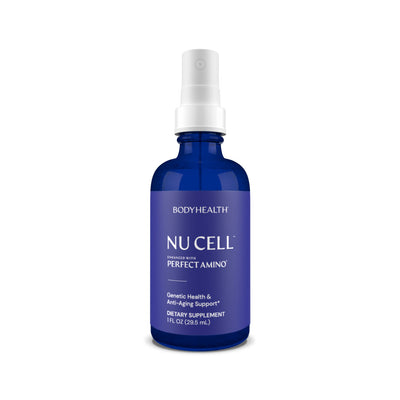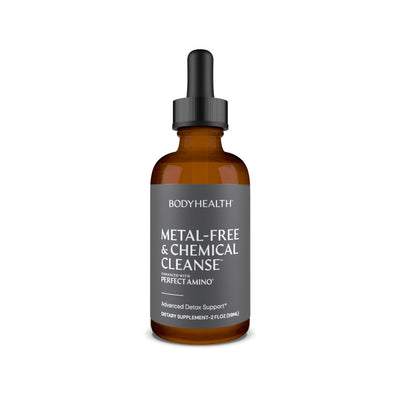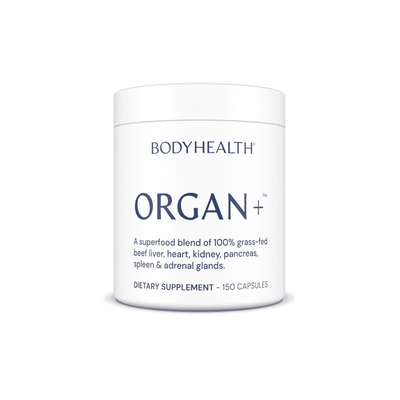Unlocking The Aging Process
May 27, 2025 7 min read

That’s a nice title, isn’t it? Unlocking The Aging Process.
But what does it really mean?
If we want to actually increase longevity, actually increase lifespan and overall health and ability during the entirety of that lifespan, then we need to look at some things.
We need to define what we’re talking about and, even more, compare the current “norm” we’ve become accustomed to… to what not only can exist, but does exist in other places today.
Heart disease, cancer, diabetes, dementia, high blood pressure, kidney disease, autoimmune disease, loss of muscle, strength and energy, low hormones, brittle bones — these are what many of us think of when we think of aging.
Because that’s just because this is what we’ve become accustomed to seeing.
And that’s the first thing we need to correct. Because the above laundry list does not come from normal aging.
This is abnormal aging.
And it doesn’t have to exist. At least not to the degree that it does in our current society.
A person should be able to live past 100 years old, with high energy levels, strength and mental ability, doing what they want without the need of twenty different drugs to keep them going, and then pass away peacefully.
And not only should that be the case, but in places outside of our “modern world” — called Blue Zones — it is the case. Quite routinely.
And it’s not due to genetics. We know this because when these same people are moved to the modern world, their disease and death rates parallel everyone else’s.
No. Getting older doesn’t have to mean getting weaker, slower, sicker, feebler, or more dependent.
There’s something else at work here.
There are conditions that come with aging. And then there are conditions that accelerate the aging process and bring about the above list of diseases.
And in this series we’re going to cover them: where they come from, how they affect us and what you can do about them.
I’m in my seventies and run the largest alternative health clinic on the planet. I work about 8-10 hours per day, still run in triathlons, have high energy, I’m strong and I’m healthy.
And there’s no reason you can’t be too.
So let’s dive in.
DISEASE MANAGEMENT VS ROOT CAUSE
When we look at bad conditions in life, where things are going wrong, there is always a cause. Things don’t “just happen.”
The same is true when we talk about health.
If something is going wrong in the body, there is a reason.
But in the US, and many other places, more and more, we don’t look at the causes of disease, but instead their symptoms. And we address those.
I call this “Disease Management.”
If we’re in pain, that’s a symptom. The pain is a symptom. And it’s caused by something.
We can take a pain killer, which numbs the pain — “manages” the pain, but this doesn’t address the cause of the pain. So when the pain killer wears off, we still have the pain.
When we only address the symptom, and not the cause, the cause doesn’t go away.
Even more, over time, the cause can get worse.
Let’s use an analogy.
Say you have a leak in your kitchen. Water is dripping from the ceiling onto your floor. So you call a repairman.
Now, if he were looking for the cause he would probably look inside the ceiling, or above it. Where is this water coming from? Is it a broken pipe? Is it from the air conditioner? Is it a leak in the roof?
Once he finds where the water is coming from he can seal it off and the drip goes away.
That would be addressing the root cause of the problem. It would be done. We could move on with life.
But what if he didn’t do that? What if he just addressed the symptom?
Well, the symptom is water puddling on the floor.
So he cleans up the water on the floor and puts a bucket under the leak.
Good, no more water on the floor.
But then he tells you that this bucket will need to be emptied regularly. And not only that, but that as he’s an expert in the area, he needs to be the one to do it.
So he charges you for the first visit, and then signs you up for his monthly “bucket-emptying” service.
But wait, the cause of the leak hasn’t been found and addressed. So one day, maybe a day or week or month later, there’s a new drip coming from near the first.
So he increases your bucket “prescription.” Now you have two buckets.
Mold starts to grow on the ceiling where the water comes through.
So he charges you for mold spray that “keeps it under control” so it won’t spread to much, and he sells you some air freshener for the smell.
It gets worse. More water is coming down. Buckets cover the floor. It smells so musty.
So he rents you a powerful fan to blow the air away.
And… eventually the ceiling falls in and you look up at the sky through the hole in the roof that has been there this whole time, steadily growing.
NORMAL AGING VS ABNORMAL AGING
Did you get all that?
It may seem silly, or exaggerated, but now look at the state of healthcare in the US. It’s all symptom based. It’s all about how we can “manage” our conditions.
Type 2 Diabetes? Don’t change your diet to reverse it, instead take insulin for the rest of your life to slow the decay it causes.
High blood pressure? Don’t change your diet, take blood pressure medication to manage it, while simultaneously lowering your hormones and energy levels.
Now, I’m not saying this is never needed. Sometimes it really is.
But can we at least try to find the cause of the situations and address those?
When we look at our body, we’re looking at our house.
If there’s something wrong in our body, that’s a “leak.”
We can find the cause of the leak and fix it so it’s gone, or we can “manage” it, and watch as it gets worse over time.
This is what most of us know as aging, watching our body slows degrade over time, getting worse and worse.
But the thing is, it’s not normal. It’s abnormal.
Most “aging” today isn’t due to our house slowly “wearing out.” It’s due to leaks that have sprung that we don’t then address.
Someone in their sixties with a host of ills or conditions isn’t just “old.”
This is the result of “leaks” that have sprung up over the course of their life which, unaddressed, slowly build up, causing new problems which, also not addressed, cause even more new problems… until we have what we have today.
But it isn’t normal. And it doesn’t have to be this way.
Over the next several weeks we’re going to dive into what’s actually happening here.
What is different in our society vs those where living past 100 in good health isn’t strange?
What are the various causes of abnormal aging?
And what can we do to stop and even reverse it?
We’re going to cover it. So stay tuned.
But there are a few things you can do right now.
KEYS TO PREVENTING & REVERSING ACCELERATED AGING
While there is much information on the subject, and actions we can take, if we break it down to its utmost simplicity, the key points are:
What are we taking into our body that is speeding up the aging process?
And what are we not taking into our body that would be needed to slow or even reverse aging?
Toxins, processed oils and trans fats, high omega 6 fats and processed sugars all work to damage not only our cells, but the DNA and RNA that exist to oversee the continual formation of new, healthy cells.
Any one of these disrupters slowly degrades the health and efficiency of our cells and our DNA, so that new cells are gradually less and less functional.
And this is one of the largest factors behind accelerated aging, causing drier, unhealthy skin, lower energy, slower recovery, muscle loss and much more.
But it can be reversed.
We dive into this more deeply in the Longevity Series, but if our DNA contains the blueprints to build new, healthy cells, which must occur on a daily basis throughout our body, then anything that would harm the DNA needs to be addressed, and the damage repaired.
Toxins are the key disrupters here. And our environment contains more and more of them every year.
Our food, water and air have about 50 times the amount of toxins in them as they did 70 years ago.
This is why it's so important to drink fully filtered water, eat organic foods and not use toxic skin care products.
But even with that, due to the sheer amount of toxins today, we need to be proactive in addressing them and the effects they have on our cells, DNA, and overall aging.
Metal-Free & Chemical Cleanse contains some of the most powerful detox ingredients there are, along with a special ingredient, Fullerenes, that both detoxes and acts as a supercharged antioxidant and anti-aging agent to protect cells from toxic effects.
Then, just as our body uses amino acids to build and repair proteins, it uses nucleic acid building blocks to build and repair DNA and RNA in our cells.
Nu Cell is a very unique blend of nucleic acids that the body uses to help repair the damage done by toxins and restore the integrity of our DNA and RNA.
And PerfectAmino, of course, is the exact ratio of essential amino acids that your cells need to enact the plans of our DNA for the healthiest, youngest cells you can have.
Each one of these is crucial to prevent abnormal, accelerated aging.
And they work.
Lastly, Reds and Greens, along with Multi Complete, provide our cells and microbiome with key adaptogens, antioxidants and other nutrients they need to operate at their fullest and defend themselves against the chemicals that would harm them.
While there is much more covered in the Longevity Series, the above trio of Metal-Free, Nu Cell and PerfectAmino form a truly cutting edge address to aging, and with Greens, Reds and Multi, our body has what it needs to operate at it's fullest well into our later years.
Try the above for 4 weeks and see just how good you can feel.
Articles by Health Topic
Your Path To Better Health Starts Here!
From in-depth articles on nutritional benefits to updates on new product launches, stay informed and inspired on your journey to optimal health.
*These statements have not been evaluated by the Food and Drug Administration. These products are not intended to diagnose, treat, cure, or prevent any disease.












